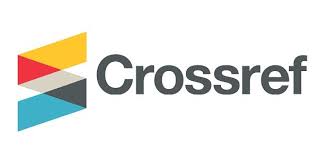THE IMPLEMENTATION OF FREE LEGAL AID (PRO BONO) AS ACCESS TO JUSTICE IN CRIMINAL CASES IS REVIEWED BASED ON LAW NUMBER 16 YEAR 2011 ON LEGAL AID (Study at LBH Solo Raya Office)
DOI:
https://doi.org/10.33061/wh.v27i2.5343Keywords:
Legal Aid, Legal Aid Agencies, Access to JusticeAbstract
Indonesia is a country based on law (rechtsstaat), and is not based on mere power (machtsstaat) where guaranteeing respect for the right to justice and equality before the law is an obligation of the state. However, in practice, access to justice and equality in the face of the law is not evenly distributed to all groups, especially for the poor or poor. Often, when dealing with the law, the rights of suspects / defenders are not able to be fulfilled properly, especially the right to obtain free legal assistance (pro bono). Based on this, Law No. 16 of 2011 on Legal Aid was born to guarantee the exercise of the right to legal aid and is arranged in an orderly order so that it is expected to realize justice and equality of standing before the law for the poor.References
Book Source:
Muhammad, Abdul Kadir. 2009. Law and Legal Research. Bandung: PT Citra Aditya Bakti.
Yasin, Muhammad. 2014, Guide to Legal Aid in Indonesia. Your Guide to Understanding and Resolving Legal Issues. First Printing , Jakarta: Indonesia Torch Foundation.
Nasution, Adnan Buyung. 2007. Legal Aid in Indonesia. First Printing Revised Edition. Jakarta: LP3ES Indonesia Library.
Laws and regulations:
1945 Constitution of the Republic of Indonesia.
Law Number 16 of 2011 concerning Legal Aid.
Government Regulation Number 42 of 2013 concerning Terms and Procedures for Providing Legal Aid and Distribution of Legal Aid Funds
Journal Article :
Zainuddin, Muhadi. 2004. Role of Socialization of Law on Advocates in Empowering Community Legal Awareness. Al-Mawarid Journal, No. 12.
Biroli, A. 2015. The Problems of Law Enforcement in Indonesia (Study with a Sociology of Law Perspective. Journal of Dimensions, Vol. 8. No.2.
Downloads
Published
How to Cite
Issue
Section
License
Copyright (c) 2021 Andi Muhammad Santoso, Supriyanta Supriyanta, Esti Aryani

This work is licensed under a Creative Commons Attribution-ShareAlike 4.0 International License.
Authors who publish with this journal agree to the following terms:
- Copyright on any article is retained by the author(s).
- The author grants the journal, the right of first publication with the work simultaneously licensed under a Creative Commons Attribution License that allows others to share the work with an acknowledgment of the work’s authorship and initial publication in this journal.
- Authors are able to enter into separate, additional contractual arrangements for the non-exclusive distribution of the journal’s published version of the work (e.g., post it to an institutional repository or publish it in a book), with an acknowledgment of its initial publication in this journal.
- Authors are permitted and encouraged to post their work online (e.g., in institutional repositories or on their website) prior to and during the submission process, as it can lead to productive exchanges, as well as earlier and greater citation of published work.
- The article and any associated published material is distributed under the Creative Commons Attribution-ShareAlike 4.0 International License
















.png)


